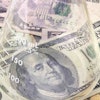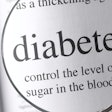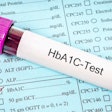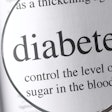
A large population-based cohort study has linked COVID-19 to increased risk of diabetes, adding to the evidence that SARS-CoV-2 infection may contribute to the development of the metabolic disorder.
Multiple studies have found correlations between SARS-CoV-2 infection and diabetes. However, their relatively small sample sizes and limitations related to subject selection or evaluating outcomes have left scope to question the robustness of the findings. To address these limitations, researchers at the British Columbia Centre for Disease Control in Vancouver reviewed data from a public health surveillance platform.
The analysis, details of which were published Tuesday in JAMA Network Open, looked at 629,935 people, 503,948 of whom tested negative for COVID-19. By looking at the rates of incident diabetes among people who tested positive and negative, the researchers sought to show if infection is associated with increased risk of the metabolic disorder.
Across a median of 257 days of follow-up, 0.5% of positive and 0.4% of negative patients had incident diabetes events. The rates translated into 672.2 incidents per 100,000 people in the positive group and 508.7 incidents per 100,000 people in the negative group. The difference between the event rates in the two cohorts was statistically significant. The effect was driven by the risk of diabetes in males, although females with severe COVID-19 were also at significantly higher risk of being diagnosed with diabetes.
In an accompanying commentary, researchers at the Center for Community Health Integration in Ohio noted that there are reasons to expect SARS-CoV-2 infection to increase diabetes diagnoses. The virus infects and kills pancreatic beta cells, and the stress of severe COVID-19 can activate a response that drives the death of the beta cells. Those stresses could cause prediabetic patients to develop diabetes.
The Ohio researchers also think “it is reasonable to speculate” that some people could make antibodies against beta cells. “A patient accumulating such antibodies and progressing toward type 1 diabetes could have its manifestations accelerated by additional autoantibodies,” the researchers wrote.
If COVID-19 is increasing diabetes rates, the virus could have another costly impact on societies. The Canadian cohort study found SARS-CoV-2 infection may have contributed to a 3% to 5% excess burden of diabetes at a population level. Scaled to the U.S. population, that excess could translate into billions of dollars of additional financial burden.
More work is needed to elucidate the link between infection and diabetes and what, if anything, can be done to sever it. The authors of the JAMA paper note several limitations of their study, including that they cannot completely rule out surveillance bias as a driver of the increased diabetes diagnoses.



















